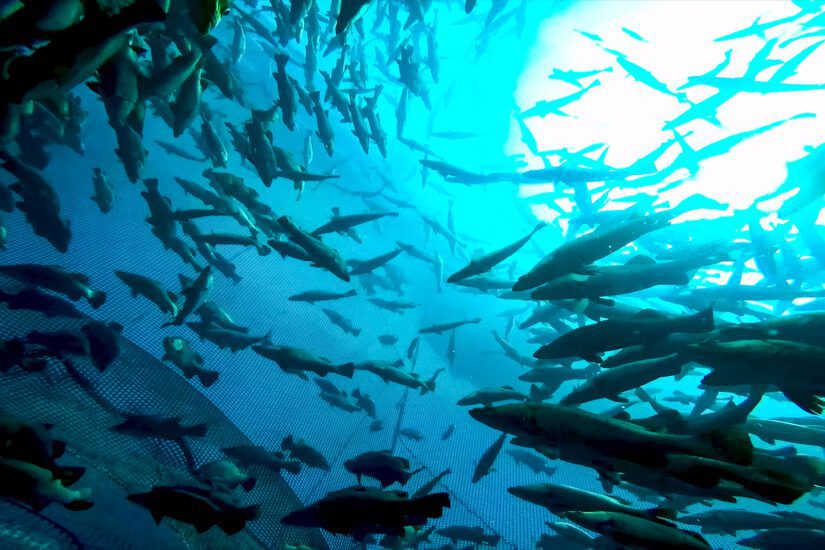The National Farm Animal Care Council has released Canada’s first Code of Practice for the Care and Handling of Farmed Salmonids (salmon, trout, charr).
We know that fish are sentient and have the ability to feel pain, fear, and stress. This is an exciting and necessary step towards improved fish welfare on land and sea-based farms in Canada.

During the public comment period on the draft code, 40% of the comments came from B.C., showing once again how much British Columbians care about farm animals. Thank you to everyone who took the time to submit their feedback and speak up for fish welfare. The Code Development Committee heard your voices, and changes were made thanks to your input!
Here are four welfare concerns you identified within the draft code, and how the Code Development Committee addressed these concerns as a result:
-
Biodensity (space allowance)
Biodensity refers to the number of fish in a tank or pen. As the number of fish in a tank or pen increases, the potential for negative impacts on fish welfare increases as well. Rather than waiting until serious welfare concerns arise, farmers now have to take action much sooner if a tank or pen becomes too full to prevent fish suffering.
-
Handling
The requirement that fish must never be lifted or carried by only the head, tail, or gills now also includes the fins.
-
Sea lice
The committee agreed with feedback that guidance is needed on when to euthanize fish with sea lice infestations to prevent suffering. The code now requires consultation with a veterinarian to decide if further treatment or euthanasia is the best option.
-
Slaughter methods
In order for slaughter methods to be acceptable in the code, they must be quick, cause minimal stress and pain, and result in rapid, irreversible loss of consciousness. You spoke out against certain slaughter methods, due to their potential to cause suffering. As a result, decapitation and cervical transection are no longer permitted in the code.
Thank you to everyone who participated in the public comment period. Your feedback brought important improvements to fish welfare, not only in the areas mentioned above, but throughout the entire code.
Additional resources:
Subscribe to FarmSense newsletter
Are you passionate about farm animal issues? FarmSense is delivered four times a year and includes news about farm animal welfare, and updates on what the BC SPCA is doing to help improve the lives of farm animals in Canada.
The BC SPCA uses your personal information to update you on our work for animals as well as for advertising and analytics purposes. More information on uses and how to opt-out can be found in our Privacy Policy.
